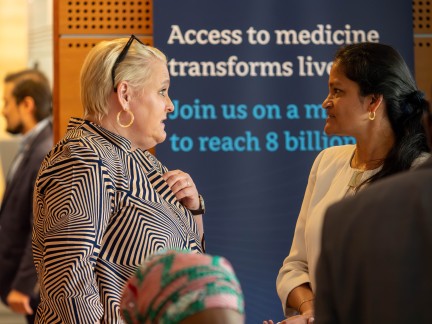Date
20 October 2023
State of the Economy. Is the global health sector witnessing a shortage of generic medicine supply amid wars?
Direct links
The episode opens with Iyer providing an overview of the current state of affairs: "At the moment, there are serious shortages of generic medicines around the world, and this is actually a global problem. And at the same time, millions of people around the world cannot access basic essential medicines, and it is not only limited to hard-to-reach areas in resource-limited settings but it also affects people living in urban areas itself. So, there's a lot that can be done by the generic industry as key players in making an impact in people's lives."
Iyer discusses the report finding on product registration, which highlights the untapped potential for companies to register more essential products in low- and middle-income countries. She outlines reasons why some generic drug makers fail to register their products, such as the presence of other generic manufacturers in the market, low returns on investment, and a focus on high-income markets.
Iyer also speaks about how generic and biosimilar medicine manufacturers are engaging in adaptive research and development, whereby products are tailored to meet the needs of people living in low- and middle-income countries. These adaptations aim to improve adherence and outcomes. She discusses patient assistance programmes as a way to expand access to medicine, underlying that there needs to be monitoring of the patient's ability to pay for the cost of treatment.
The episode also explores issues of quality control and trust in the Indian pharmaceutical industry following incidents of contaminated cough syrups. Speaking of the issue, Iyer said: "There's been a lot of distrust in the Indian pharmaceutical industry because of the fear of quality, and we need to see much more investment from the manufacturers in their good manufacturing practice standards and a stricter adherence to these standards itself. "


